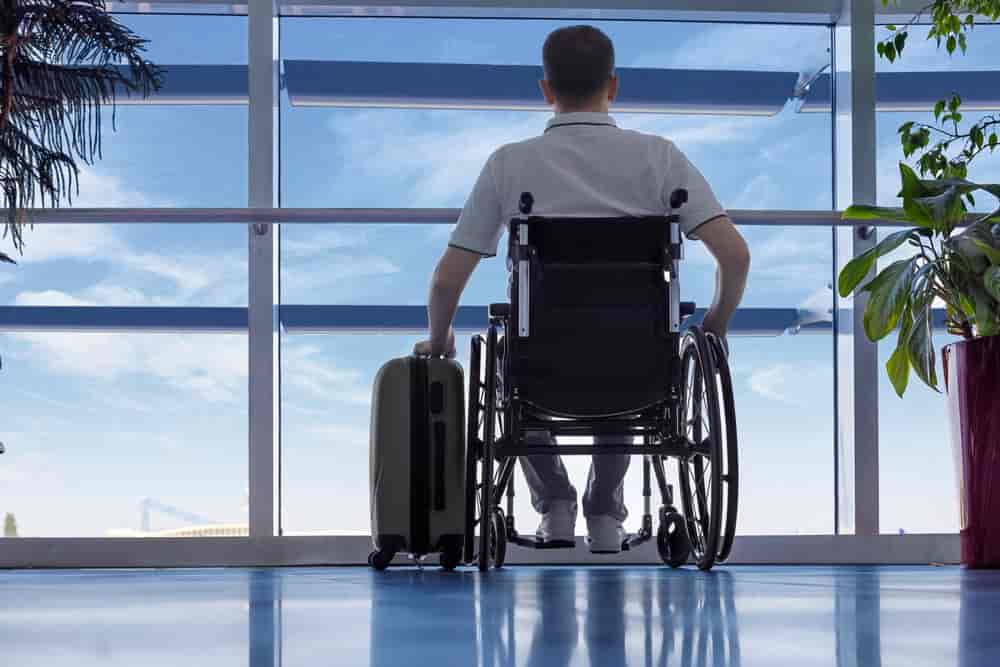Traveling can be an incredibly enriching experience as it opens doors to new cultures, breathtaking landscapes, and unforgettable memories. For disabled people, however, planning a trip often requires extra consideration and preparation. This guide provides ten travel tips for disabled people to help them embark on their first accessible adventure with confidence and ease.
1. Plan Ahead: Thorough Research is Key
Thorough planning is paramount for accessible travel. Research your destination meticulously, focusing on accessibility features at airports, hotels, attractions, and transportation systems. Check websites for accessibility information, read reviews from other disabled travelers, and contact venues directly to confirm accessibility details. Don’t hesitate to ask questions as clear communication is crucial to all your plans.
2. Choose Accessible Accommodation:
Select accommodations specifically designed for accessibility. Look for features like ramps, elevators, wide doorways, accessible bathrooms with grab bars, and roll-in showers. Many hotels now offer accessible rooms, but it’s crucial to confirm availability and specific features well in advance of your booking. Websites specializing in accessible travel can be invaluable resources.
3. Book Flights and Transportation in Advance:
Book flights and other forms of transportation well in advance, especially if you require special assistance. Inform airlines and transportation providers of your accessibility needs, including any required equipment or assistance. Many airlines offer pre-boarding or wheelchair assistance services. Confirm these arrangements well in advance to avoid any last-minute surprises.
4. Pack Smartly and Add Only Essential Items and Medications:
Pack strategically, including any necessary medical equipment, medications, and personal care items. Keep essential medications in their original containers and carry a copy of your prescriptions. Consider packing lightweight, versatile clothing items that are easy to manage. Organize your luggage efficiently to minimize stress during travel.
5. Travel Insurance is Non-Negotiable:
Invest in comprehensive travel insurance that covers medical expenses, trip cancellations, and lost or damaged equipment. Ensure your policy specifically covers your disability-related needs and any potential medical emergencies. Read the policy carefully and understand what is and isn’t covered.
6. Communicate Your Needs Clearly:
Communicate your accessibility needs clearly and proactively to all relevant parties, including airlines, hotels, tour operators, and transportation providers. Carry a copy of your accessibility requirements, including any medical information or assistive device details. Don’t be afraid to advocate for your needs as clear and crisp communication is key to a smooth journey.
7. Consider Assistive Technology:
Explore assistive technologies that can enhance your travel experience. This could include GPS navigation apps, translation apps, or other devices that can assist with mobility, communication, or other needs. Research and test any new technology before your trip to ensure you are comfortable using it.
8. Build in Downtime and Flexibility:
Plan for downtime and flexibility in your itinerary. Traveling can be tiring, especially for disabled people. Allow for rest periods and unexpected delays. Don’t overschedule your days, and be prepared to adjust your plans if necessary.
9. Travel with a Companion (If needed):
Consider traveling with a companion who can provide assistance if needed. A companion can help with navigating unfamiliar environments, managing luggage, and providing support during challenging situations. However, remember that independent travel is also empowering and achievable with proper planning.
10. Embrace the Unexpected and Celebrate Your Journey:
Be prepared for unexpected challenges and embrace them as opportunities for growth and learning. Traveling with a disability can present unique obstacles, but it also offers a chance to discover your resilience and adaptability. Celebrate your achievements and enjoy the journey – your experiences will be uniquely yours.
Summing Up:
Traveling with disabilities is absolutely achievable with careful planning and preparation. By following these tips, you can embark on your first accessible adventure with confidence, creating memories that will last a lifetime. Remember, your journey is unique and valuable – embrace it fully!



